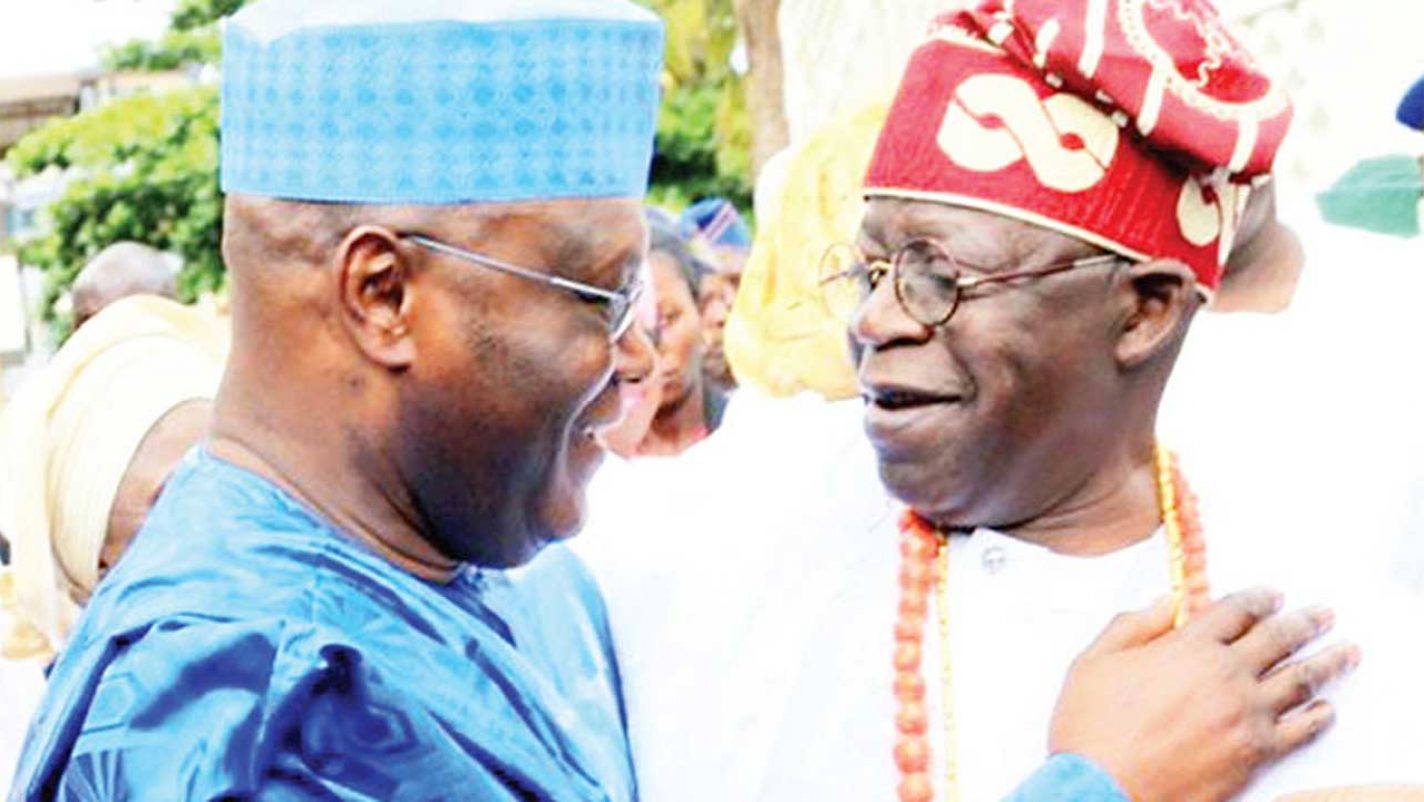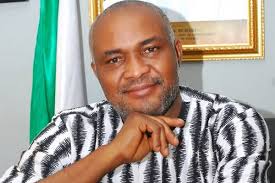Politics
Atiku Queries FG’s Accelerated Approval Of Oando, AGIP/ENI Deal

. . . Slams Tinubu Over Subsidy Scam, Rights Abuse
. . . Demands Release Of Detained Whistleblower, Bristol Tamunobiefiri
Former Vice President of Nigeria, Atiku Abubakar has demanded for explanations from the Federal Government on the accelerated approval for Oando to buy the onshore assets of AGIP and ENI while other transactions like the Shell/Renaissance deal and the Mobil/Seplat remained in the cooler.
Biztellers reports that the Presidential Candidate of the Peoples Democratic Party in Nigeria’s 2023 election alleged that the Oando Plc owned by the Tinubu family.
ALSO READ; Atiku Showers Praises Enigmatic IBB On 83rd Birthday
This was contained in a statement in Abuja, on Sunday by the Special Assistant on Public Communication to Atiku Abubakar, Phrank Shaibu.
According to Shaibu, his principal also slammed the Bola Tinubu administration for implementing a sham subsidy regime as revealed in the financial statement recently released by the Nigerian National Petroleum Company Limited (NNPC Ltd).
Atiku lamented, “Tinubu visited the FMDQ in New York, visited Qatar, visited France where he told lies about removing petrol subsidies. Obviously, this is not a man who is serious about attracting FDI.
“More worrisome is that he is not even brave enough to admit that subsidy is being paid. The NNPCL admits that N7.8tn is owed to the national oil company by the Nigerian government.
“IMF estimates that subsidy payments this year will constitute 3% of GDP, which is about $7.5bn. This will be about N11.8tn. Yet, the petrol scarcity continues to linger while the Tinubu administration continues to frustrate the Dangote Refinery and even its own NNPCL facilities.
“Obviously, the subsidy regime has become an even wider conduit pipe through which monies for funding the 2027 election will come.”
Atiku, Shaibu wrote, doubled down on his allegation that Oando was being given undue and preferential treatment in the oil and gas sector to the detriment of more competent investors.
Specifically, Atiku knocked the House of Representatives for failing to take proper action on the NNPC Ltd which has now gone ahead to “mortgage the country’s national oil assets to vested interests”.
Atiku said, “Within just eight months, the Nigerian Upstream Production Regulatory Commission (NUPRC) approved a deal which saw the divestment of ENI/AGIP onshore assets to Oando. Within that same period, Nigeria controversially withdrew all litigation against Shell/ENI in the OPL 245 scandal in what has been described as a quid pro quo.
“However, the attempt by SEPLAT to buy Mobil’s onshore assets has continued to stall for the last three years even as the consent letter remains on Tinubu’s table. The deal between Renaissance and Shell continues to stall.
“In fact, the only deal that has fully scaled through so far is the one involving Oando. We now know why it got accelerated approval.
“Ideally, democracy ought to be government of the people, for the people, and by the people. But democracy in Nigeria has become the government of Tinubu, by Tinubu, and for Tinubu and his family members.”
Atiku added, “In July 2023, the House of Representatives, following the adoption of a motion moved by Miriam Onuoha directed NNPC Ltd to suspend the acquisition of OVH assets pending an investigation by its committee.
“The House ad-hoc committee requested the NNPC Ltd to furnish it with information about registration documents/history from CAC for OVH, Nueoil, and NNPC Retail Limited (NRL), Board Resolution of NNPC Ltd on purchase of OVH, Audited Financial Statement and Management Accounts from 2015 to date of OVH, Nueoil, NRL and NNPC Ltd and the payroll from 2015 to date for NRL and OVH; Board Resolution of NRL/CHQ for movement of head office to Lagos and evidence of Tax Payments for NRL and OVH from 2015 to date.
“The NNPC ignored all these and went ahead to transfer its ownership and properties in its retail arm to OVH, thereby mortgaging the future of Nigerians.
“Despite the rot in the oil sector, the head of the NNPC, the head of the NUPRC, and the head of the NMDPRA continue to keep their jobs. This is clear evidence that they are fulfilling the mandate given to them by Tinubu.”
Furthermore, Atiku pointed out that the NNPC lied in its vacuous response to their statement last week, as it is on record that the Kyari-led management appointed Huub Stoksman, a former Chief Executive Officer of OVH Energy, as Managing Director of NNPC Retail, and Mumuni Dangazau, the former Chief Operating Officer of OVH Energy, as his Special Adviser Downstream, long before the consummation of the incestuous marriage of the entitities.
In a related development, Atiku also lambasted the Tinubu administration for the rise in human rights abuses.
According to the Waziri Adamawa, Tinubu who rode to power over exaggerated claims of being a freedom fighter, had turned against the people by allowing the Department of State Services (DSS), police and even the military to abuse the rights of citizens without any consequences.
He noted that in some instances, citizens were arrested in a gestapo manner without the knowledge of their relatives who go about looking for them for several weeks.
The former Vice President said the most affected since Tinubu took office have been journalists whose only crime is reporting the news and exposing government indiscretion.
He argued that the Cyber Crime Prevention Act 2015 had become a tool with which officials in the Tinubu administration were abducting citizens while the Nigeria Police Force National Cybercrime Centre (NPF-NCCC) had transmuted into the defunct SARS.
The dangerous trend of enforced disappearances has become a national embarrassment for a country which claims to be practising democracy. On May 1, 2024, Daniel Ojukwu of the Foundation for Investigative Journalism went missing and was presumed abducted by kidnappers until he was later discovered to be in police custody on the orders of IGP Kayode Egbetokun.
“Ojukwu’s crime was that he exposed the corruption of a government official who currently serves in Tinubu’s administration. On July 23, the DSS arrested one Aliyu Sanusi in Sama Road of Sokoto, the state capital for printing and distributing materials ahead of the #EndBadGovernanceProtest. Even the arrest and release of the former BBC Pidgin Editor and current West Africa Regional Editor of the Conversation, Adejuwon Soyinka, clearly shows a pattern, which objective is to intimidate journalists for speaking truth to this government.
“Now, the police have arrested Bristol Tamunobiefiri, who owns the PIDOM Nigeria blog on X, formerly Twitter. After detaining him for over two weeks, he was granted an administrative bail, which will be impossible to meet. This is despite the fact that the Appeal Court, in the case of EFCC V. Emem Uboh (2022) LPEIR – 57968 (CA) held that administrative bail is illegal. Bristol should, therefore, be arraigned in court immediately or released,” Atiku added.
Atiku advised Tinubu to take cases of human rights abuses seriously or Nigeria would remain at the risk of being slammed with sanctions which would prevent western powers from selling weapons, a development he argues could undermine Nigeria’s ability to tackle insecurity.
“Amnesty International still has a pending petition before the Foreign Committee of the US Congress against the sale of weapons to Nigeria due to human rights concerns in line with the Leahy Law. Tinubu would do well to curb these cases of rights abuses by law enforcement authorities who all report to him as commander-in-chief,” the former Vice President said.
Politics
Obi, Kwankwaso Helped Tinubu In 2023, Will Do The Same In 2027, Says Nigerian Activist
Deji Adeyanju, a Nigerian activist and lawyer, has made explosive claims regarding the 2023 presidential election, suggesting that former Labour Party (LP) candidate Peter Obi and New Nigeria Peoples Party (NNPP) leader Rabiu Kwankwaso secretly supported President Bola Tinubu’s campaign.
In a post shared on his 𝕏 page Thursday, Adeyanju contended that Obi, who ran against Tinubu, would likely continue to support the president in future political endeavors.
He expressed certainty that Obi would decline any efforts to form a coalition aimed at challenging Tinubu in the next election.
READ ALSO: Lad Who Stood In Front Of Obi’s Convoy Apprehended For Street Fighting – Police
“I’m 100% convinced that Obi worked for Tinubu in 2023 and will do so again. I might be wrong, but I’m convinced in my mind about this,” Adeyanju wrote.
“Once a businessman, always a businessman. Those still in doubt will see the clear handwriting before 2027. He will refuse to join the coalition,” he continued.
Additionally, Adeyanju accused Kwankwaso of working in favor of Tinubu during the previous election.
He emphasized that for any opposition coalition to succeed in the 2027 race, figures like Obi and former Vice President Atiku Abubakar—another presidential hopeful—must step aside.
“For the coalition to succeed, all the self-centered politicians like Atiku & Obi should promise not to run and allow neutral folks to run against Tinubu,” Adeyanju proposed. “This is how to put the interest of the nation above personal interest,” he added.
The activist went on to criticize the culture surrounding Nigerian politics, describing it as an industry driven by opportunism.
He lamented the presence of “merchants” surrounding top politicians, accusing them of putting personal gain ahead of the country’s well-being. “The biggest industry in Africa is politics,” Adeyanju said.
“And those around popular politicians are all merchants. Once politics is around the corner, they are in business. Con men and women who just want to cash out.”
Politics
Ibas Makes First Appearance At NEC Meeting As Rivers Sole Administrator
Retired Vice Admiral Ibok-Ete Ibas, the Sole Administrator of Rivers State, attended his first National Economic Council (NEC) meeting today at the Presidential Villa in Abuja.
Ibas was appointed to the position by President Bola Tinubu following the suspension of Governor Siminalayi Fubara in March 2025.
READ MORE: Tinubu Swears In Ibas As Rivers Sole Administrator
The NEC meeting, which is being presided over by Vice President Kashim Shettima, gathered a number of state governors and deputy governors from across the 36 states of Nigeria to discuss important national economic issues.
Among the notable figures in attendance was Governor Sheriff Oborevwori of Delta State, who recently defected to the All Progressives Congress.
Governor Oborevwori led the opening prayers at the meeting on the instruction of Vice President Shettima.
Other state governors present included Rev. Fr. Hycinth Alia of Benue State, Abdulrahman Abdulrazak of Kwara, Monday Okpebholo of Edo, and Bassey Otu of Cross River, along with several deputy governors.
Politics
JUST IN: Political Earthquake In Delta As Gov Oborevwori Defects To APC
Delta State Governor, Rt. Hon. Sheriff Oborevwori, has officially joined the All Progressives Congress (APC), ending his long-standing association with the Peoples Democratic Party (PDP), under which he was elected in 2023.
The switch was confirmed on Wednesday after a closed-door meeting at the Government House in Asaba.
According to his Chief Press Secretary, Sir Festus Ahon, the decision came after extensive deliberations.
READ ALSO: Edo LP Senator, Neda Imasuen Set To Join APC
“This move followed wide consultations with political stakeholders and is in the interest of Delta’s long-term development,” Ahon stated.
Oborevwori was welcomed into the APC by senior party figures, marking what observers are calling a calculated political maneuver with potential ramifications for the 2027 elections.
More to follow…………..


















